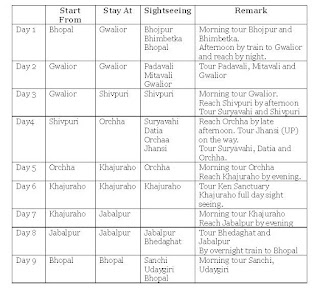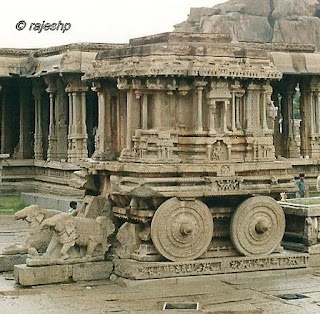This 15th century shrine of Lord Rama located in the Royal Area of Hampi is popularly called "Hazara Rama Temple". Inscriptions inside the Hazara Rama temple provide evidence of the indicate the period of origin of this temple as Devaraya I erected it in the early 15th century. This is the only temple in the area with its external walls decorated with five rows of bas-reliefs. They portray the processions of elephants, horses with attendants, military contingents, and dancing girls. (click on the image for bigger view)
The name of the temple is Rama due to the large number of Ramayana panels carved in long arrays, onto the walls of this temple. Incidents in the story like Dasaratha performing a sacrifice to beget sons, the birth of Rama, his exile into the forest, the abduction of Sita and the ultimate fight between Rama and Ravana are all carved in a vivid manner. In these panels, the story of Rama and through it the triumph of good over evil is brought out.
This high wall encloses the entire complex with the main entrances set on the east. The temple consisted of a sanctum, an ardha mantapa and a pillared hall with an open porch with tall and elegant pillars. The pillar hall is notable for its unique pillars in black-stone. They are set on a raised stone platform in the middle of the hall. The other structures in this temple complex are a shrine for Devi and Utsava Mantapa.
To the south is a small doorway, which leads to the Durbar Area. It is believed that this thempe is used privately by the royal family.


 Your continuous support and interest in my blog enthused me to show more of my Little World. Looking forward to do more of it in the New Year. Thanks to all and happy blogging.
Your continuous support and interest in my blog enthused me to show more of my Little World. Looking forward to do more of it in the New Year. Thanks to all and happy blogging.













































